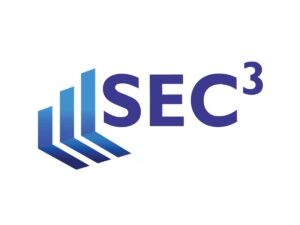Trump’s SEC Achieves Significant Advances in Reversing Crypto-Restrictive Regulations, According to Competitive Enterprise Institute

Gary Gensler’s SEC worked at a frenetic pace to shut down innovation in the crypto sector. Without rhyme or reason, the Biden-Gensler SEC moved fast and broke valuable things that legitimate entrepreneurs had created and Americans had invested in. It left a wave of destruction that led to numerous crypto projects pulling out of the US and blockchain projects that depend on crypto being abandoned or put on hold.
Fortunately, the Trump administration SEC has been working rapidly to reverse the abuses of Gensler from literally day one. Republican Commissioners Mark Uyeda, whom President Trump designated as Acting Chairman just after the Inauguration on January 20, and Hester Peirce began cutting the red tape immediately as the administration began. Here are two highlights of significant policy actions the new SEC has taken that have sent signals that the US now welcomes legitimate entrepreneurship and innovation from the crypto sector.
Overturning Staff Accounting Bulletin 121: On January 23, the same day as Trump issued his Executive Order encouraging crypto innovation and promising “transparent decision making, and well-defined jurisdictional regulatory boundaries,” the new SEC overturned a widely panned thorn in the side of the crypto sector. The SEC reversed Staff Accounting Bulletin 121, a very harmful piece of “dark matter” – to use the terminology of my colleague Wayne Crews for notices and “guidances” that have the effect of regulation.
Through its treatment of cryptocurrencies held by customers at a bank as if they were owned rather than simply custodied by that bank, SAB 121 wasa key part of the Biden administration Operation Choke Point 2.0 that attempted to wall off crypto from the banking sector. This rule garnered widespread opposition from Republican and Democratic lawmakers. Then-Rep. Wally Nickel (D-NC) chastised the rule last year, saying “SAB 121 hinders well-regulated banks from safeguarding digital assets, making the industry less safe for consumers.”
The SEC’s overturning of SAB 121 – along with the Trump EO restraining regulatory overreach — is already leading to much of the banking system embracing the crypto sector. As noted by the regulatory advisory firm K2 Integrity:
With the repeal of SAB 121, banks that had to put their digital asset business strategies on pause in 2022 due to the operational infeasibility of compliance are now in a position to restart those efforts, while those banks that may have previously been crypto-risk averse may be more emboldened to explore digital-asset-related offerings. New crypto-related business efforts are poised to spike at banks, ushering in an era of greater crypto adoption.
Withdrawing Coinbase lawsuit: The Biden-Gensler SEC’s 2023 lawsuit against the cryptocurrency exchange Coinbase – coming just two years after the same agency greenlit the firm’s initial public offering on the NASDAQ stock market – signaled hostility and arbitrariness from the US regulatory system to the crypto world. Traders and investors who has used Coinbase for years suddenly were unsure of its legality, as the SEC suit called for the firm to be “permanently restrained and enjoined” from serving its millions of customers. As I wrote here at the time, the SEC suit was “an unprecedented affront against all types of businesses in America who play by the rules but depend on regulatory agencies not arbitrarily changing the rules.”
As I explained further:
The SEC [was] asking for Coinbase to be punished for trading cryptocurrencies the SEC suddenly deemed to be “unregistered securities,” even though no fraud was involved and these digital assets have traded for years without incurring adverse government action. This SEC’s lawsuit is akin to a public health agency trying to shut down a grocery chain for selling food products the grocery has long carried on its shelves because the agency suddenly declares such foods to be unhealthy.
On February 27, the new SEC lifted this cloud of uncertainty by dismissing the lawsuit against Coinbase. In comments dismissing the suit, Acting Chairman Uyeda signaled that the arbitrary regulation-by-enforcement approach of the Biden-Gensler era was coming to an end. He said:
For the last several years, the Commission’s views on crypto have been largely expressed through enforcement actions without engaging the general public. It’s time for the Commission to rectify its approach and develop crypto policy in a more transparent manner.
There are many more constructive deregulatory actions the Trump SEC has taken benefitting the crypto sector and investors and entrepreneurs in general. We will cover them in future posts, as well as continue to offer suggestions on further slashing red tape. As I have written previously, “Ultimately, the success of the crypto sector – or any sector – must not be measured by the price of an asset in that particular sector. It should be measured on how free the sector’s entrepreneurs and investors are to innovate, access capital, and take risks to build a business or a portfolio.”
CEI Research Associate Ari Patinkin contributed to this post.
Source link
#Trump #SEC #tremendous #progress #cryptostifling #regulation #Competitive #Enterprise #Institute






